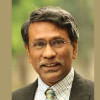Consensus talks: Poor progress may delay July Charter
Political parties have failed to reach an agreement on any reform proposals for the fifth consecutive day of the consensus talks.
This casts doubt on whether the National Consensus Commission will be able to release the July Charter, a document outlining reform proposals agreed upon by the parties, by the end of next month.
The consensus commission yesterday held talks with 30 political parties at Foreign Service Academy in the capital. It was the seventh day of the second round of talks on reforms.
The commission initially planned to finalise the charter by July 16 and then aimed for the end of the month, said a member of the commission, requesting anonymity.
Since the discussions began on June 2, nine issues have been discussed so far, and the parties have agreed on only two.
The commission has plans to hold discussions on over a dozen issues in the coming days.
The slow pace of discussions, mainly due to a series of issues and conditions raised by the parties, is delaying the process, said a commission member.
"If talks continue at the current pace, it will be difficult for us to prepare the Charter by July," the member said.
At the beginning of the discussion yesterday, Prof Ali Riaz, vice-chairman of the consensus commission, said, "We made progress in certain areas over the last week. To be honest, we are still somewhat behind in making the kind of progress we had hoped for."
At the beginning of the discussion yesterday, he said he was uncertain about when the much-anticipated July Charter would be signed.
"Only a day remains before the month of July begins. The commission is committed. We hoped to sign the charter collectively on the death anniversary of Abu Sayed [July 16]. Whether that will be possible depends on you. We are a bit anxious that we may not be able to do that. We must reach a conclusion within July," Prof Riaz said.
He emphasised that achieving progress was crucial because "none of us want to go back to where we were".
He urged political parties to keep in mind that the commission was not their opponent, because it was merely fulfilling a responsibility.
The parties have so far agreed that lawmakers will be allowed to vote against party lines, except on no-confidence motions and finance bills and the opposition MPs will chair at least four key parliamentary standing committees.
During the discussions topics like Article 70 of the Constitution, nomination of standing committee chairpersons, tenure of the prime minister, women's representation in parliament, bicameral legislature, appointment of the chief justice, fundamental principles of the constitution, method of electing the president and structure of the National Constitutional Council (NCC), were discussed.
On June 18, the BNP and like-minded parties opposed a proposal to form the NCC, which would oversee appointments to constitutional bodies and the position of chief adviser to caretaker governments.
Several political parties, including the Jamaat and National Citizen Party supported the proposal.
On June 19, political parties remained poles apart over the presidential election process. The method of electing the president came up in the discussions again in the second phase.
The BNP rejected the proposal for electing the president through an electoral college comprising lawmakers and local government representatives.
The Communist Party of Bangladesh and LDP too stood by the current system, where parliament alone elects the president. The Jamaat and the NCP, on the other hand, endorsed the idea of an electoral college.
After two days of discussions, all political parties, except the BNP and two others, on June 22, agreed that an individual cannot be the prime minister for over 10 years.
The consensus commission on June 25, revised the structure and functions of the proposed National Constitutional Council and dropped "pluralism" from the proposed basic principles of the constitution as the BNP, Jamaat, and several other Islamic parties were against it.
The proposed NCC has been renamed as the Committee for Appointments to Constitutional and Statutory Bodies, and it will not oversee the appointment of the chief adviser.
The BNP and like-minded parties were against giving NCC the power to appoint the chief adviser.
In the coming days, the commission will also hold discussions on several other key issues, including the procedure for amending the constitution, the process for declaring a state of emergency, women's representation in local government bodies, the formation of district coordination councils, and the establishment of an independent commission for redrawing boundaries of the electoral constituencies.
ANOTHER DAY WITHOUT BREAKTHROUGH
At yesterday's discussion, most parties except the BNP and its allies supported the constitutional and statutory appointment body.
BNP Standing Committee member Salahuddin Ahmed said amendments to current laws to appoint individuals to constitutional posts would be enough.
"Through such reforms, we aim to strengthen the institutional framework so that constitutional bodies can be reshaped in line with public aspirations and built more effectively in the future," he told reporters after the meeting.
NCP leader Javed Rasin said at the meeting that after hours of discussions the process just stalled.
"I propose that the commission first consult Salahuddin Bhai or the BNP about the proposals. Let them identify which ones they agree on, and only then should the commission bring them to the floor for discussion. Otherwise, there's no point in holding talks like this," he said.
Jamaat Nayeb-e-Ameer Syed Abdullah Mohammad Taher said, "It seems achieving consensus on such matters is nearly impossible."
Most participating parties suggested that the upper house be elected through proportional representation. However, the BNP, and several other parties opposed.


 For all latest news, follow The Daily Star's Google News channel.
For all latest news, follow The Daily Star's Google News channel. 








Comments